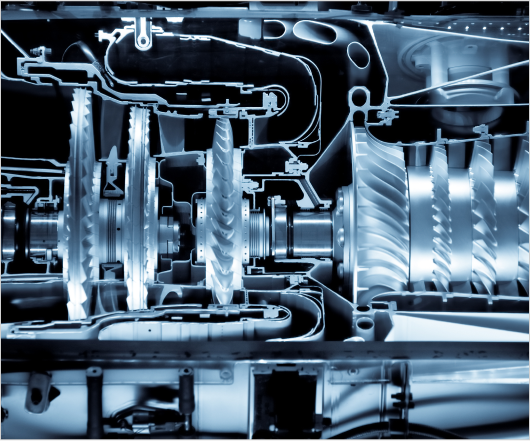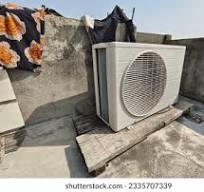Gas turbines are essential power generators in industries ranging from energy production to aviation, where efficiency and reliability are paramount. Achieving optimal performance requires understanding the various factors that influence turbine operation, including environmental conditions, fuel quality, maintenance practices, and load demands. By managing these key aspects, operators can ensure that gas turbines run efficiently, reducing costs, enhancing durability, and minimizing environmental impact.
1.Environmental Temperature and Its Impact on Efficiency
Temperature is a major factor affecting gas turbine efficiency. As ambient temperature rises, air density decreases, which can lead to a drop in turbine efficiency. Since gas turbines require dense air for optimal combustion, lower air density can reduce power output. Conversely, cooler temperatures improve air density, allowing for more efficient combustion and increased power generation.
To mitigate the impact of high temperatures, operators can use cooling technologies like evaporative cooling or inlet fogging. These solutions cool the air before it enters the turbine, improving air density and enhancing performance during hot conditions.
2.Humidity
Humidity levels in the surrounding air also impact gas turbine operation. High humidity reduces the effectiveness of combustion, as water vapor takes up space that would otherwise be occupied by oxygen. Reduced oxygen levels can hinder combustion, leading to a decrease in power output.
To counteract the effects of high humidity, operators sometimes use dehumidification systems or adjust the air-fuel mixture to maintain performance. Humidity management is essential for efficient combustion, especially in regions with consistently high moisture levels.
3.Air Pressure
Altitude and air pressure are other key environmental factors that affect turbine efficiency. At higher altitudes, air pressure decreases, reducing the amount of air available for combustion. As a result, turbines at elevated altitudes may experience lower efficiency and power output than those at sea level.
To address this issue, operators can modify turbine settings to suit high-altitude conditions. Additionally, some gas turbines are specifically designed to function efficiently at varying altitudes, making them more adaptable to changing pressure conditions.
4.Air Quality
Air quality is an often-overlooked factor that significantly impacts gas turbine performance. Dust, pollen, pollution, and other airborne contaminants can enter the turbine, leading to buildup on blades, filters, and other components. This buildup reduces the efficiency of airflow through the turbine, impacting overall performance and potentially leading to increased wear and tear.
Using high-quality air filters and regularly cleaning turbine components can help mitigate the effects of poor air quality. For turbines located in areas with high pollution or dust levels, enhanced filtration systems and frequent maintenance are essential to maintain optimal performance.
5.Fuel Quality
Fuel quality is a critical determinant of gas turbine performance. High-quality fuel ensures stable combustion, providing consistent power output and efficiency. On the other hand, low-quality fuel with impurities can lead to incomplete combustion, increasing emissions and potentially causing damage to turbine components.
Operators must use fuel that meets specific purity standards to avoid inefficiencies. Regular fuel quality checks are recommended to ensure combustion remains stable and efficient. Using high-grade fuel also reduces the risk of carbon buildup, which can impair turbine function over time.
6.Maintenance Practices and Operational Reliability
Maintenance is a cornerstone of reliable gas turbine operation. Regular and predictive maintenance schedules prevent breakdowns, improve efficiency, and extend the lifespan of the turbine. Maintenance activities typically include inspecting filters, checking fuel lines, and cleaning the turbine components to prevent contaminant buildup.
Preventive maintenance, conducted at scheduled intervals, addresses potential issues before they become problematic. Predictive maintenance, using real-time data to monitor the turbine’s condition, allows for maintenance only when needed. This approach not only optimizes efficiency but also reduces downtime, making predictive maintenance an increasingly popular option in high-demand industries.
7.Load Variability and Operational Demand
Gas turbines are often subjected to changing load demands, particularly in industries where energy needs fluctuate throughout the day or week. Rapid changes in load can impact turbine efficiency and increase wear on components. Higher loads typically require the turbine to operate at full capacity, while lower loads may result in reduced efficiency.
To manage load variability, operators can use load-shedding techniques or employ gas turbines with flexible design features that handle changing demands. These strategies help maintain consistent performance regardless of operational demand.
How Gas Turbine Control Systems Mitigate Factors Affecting Operations
A gas turbine control system plays a critical role in managing and mitigating factors that impact turbine operations. It continuously monitors and adjusts key parameters like fuel flow, combustion temperature, and turbine speed to maintain optimal performance. Environmental conditions, such as temperature and humidity, can significantly affect turbine efficiency; for instance, high ambient temperatures reduce air density, impacting power output. The control system responds by optimizing air-fuel ratios and adjusting other settings to adapt to these changes. Similarly, fluctuations in fuel quality and load demands are managed by the control system to prevent combustion instability and excessive wear, thus enhancing efficiency, minimizing emissions, and extending the turbine’s operational life. The IS200EXAMG1AAB, IS200EGPAG1B, and IS200TSVCH1AJE are among GE’s range of spare parts.
Conclusion
Understanding and managing the factors that impact gas turbine operation is crucial for achieving high efficiency, reducing costs, and extending the lifespan of the equipment. By addressing environmental conditions, using high-quality fuel, implementing effective maintenance practices, and managing load variability, operators can significantly enhance the performance and reliability of gas turbines.














